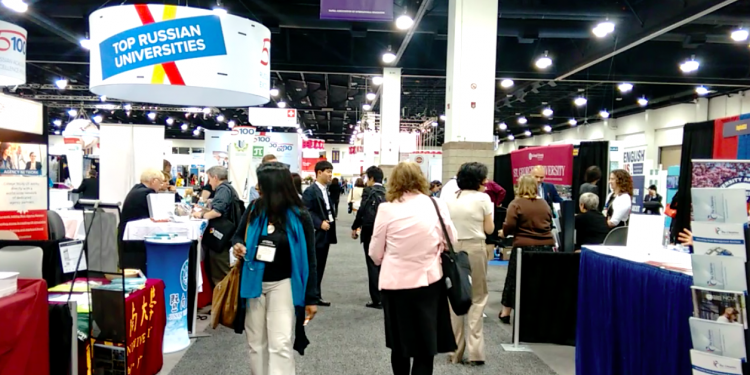Uno de los acérrimos rivales de la vía acuática de Nicaragua desde que se anunció, a como correspondía el cargo de administrador del Canal de Panamá, es Alberto Alemán Zubieta. Ahora, en su calidad de ex funcionario, debió admitirlo cuando veía pasar el primer buque neopanamax, Cosco Chipping, que dio por inaugurado la ampliación:“El mundo cambia y va a seguir cambiando, no hay que tener miedo a cambiar; el mundo cambia y cambia a velocidad”. Zubieta lucía impresionado ante el espectáculo, poniéndole la leyenda con que debían apreciarse las imágenes trasmitidas por CNN.Pero el mundo no solo es Panamá, que en buena hora dio un salto. Precisamente por no tener miedo a las transformaciones es que el Gobierno de Reconciliación y Unidad Nacional decidió impulsar el Canal. Lógico: el mundo que Zubieta “autorizó” a “cambiar”, también lo compone un país llamado Nicaragua.
Además, dijo algo que trasciende el reducido ámbito al que se refirió con esta frase: “La empresa que no cambia, está condenada a morir porque el mundo cambia”.
Claro, él partía de 1914 y de las esclusas de manufactura estadounidense. Pero también se aprecia que el país debía estrenar la independencia con algo propio: ensanchar el recorrido con sello panameño para poder garantizar el futuro de la nación. De lo contrario, el primer mundo pasaría flotando en medio del subdesarrollo por algún tiempo más, ¿y luego?
Por supuesto, el que no cambia está destinado al ocaso: sea empresa, partido, político, profesional, técnico, científico, artista…o Estado. Si un país no cambia, el mundo lo hará, pero llevando de arrastre, allá en la cola de los fracasos, las frustraciones nacionales.
Es encomiable que por vez primera, Nicaragua planteara la necesidad de construir un Canal que incluso es de orden natural, en tanto se aprovecharán las condiciones propicias con que Dios bendijo a la patria.
La nave china que avanzó lentamente por el pasadizo redimensionado, está capacitado para cargar 9.400 contenedores a bordo. En el de Nicaragua podrán navegarlo barcos de 25 mil TEU. Un contenedor de 20 pies equivale a un TEU (Twenty-foot Equivalent Unit).
Hasta el domingo 26, Panamá absorbía el 5% del comercio marítimo mundial. Con las no suficientemente bien aumentadas esclusas de Agua Clara y Cocolí, ese país captará 3% más, para sumar el 8% del negocio global. Y, ciertamente, sin los mares, donde surca el 95% de todo lo que consume el planeta, no hay mercado que valga.
Venir a decir que el Canal de Nicaragua no tendrá demanda o es por ignorancia o simplemente porque hay intereses politiqueros disfrazados de banderas “ambientalistas”, “derechos humanos”, “periodismo independiente”… Pero Zubieta no oculta el rostro con antifaces de seudohéroes. Sus razones son empresariales: la competencia.
Mientras en la transmisión central de CNN sobre el Canal la periodista Patricia Janiot abordó historiadores, funcionarios de la Autoridad del Canal, ingenieros, administradores, ciudadanos expectantes, a la cadena no le interesó la opinión de los dirigentes opositores al actual gobierno panameño.
No obstante, al ser mencionada la posibilidad del Canal de Nicaragua, la representante de CNN en Managua, en su intervención, hizo todo lo contrario a lo que mandan las reglas mínimas del verdadero periodismo: degradó la cobertura internacional a telepanfleto, al darle rienda suelta a su afinidad política con el extremismo derechista.
En vez de entrevistar a especialistas y representantes de la Cámara de Construcción de Nicaragua, catedráticos de la Universidad de Ingeniería, Asociación Nacional de Geólogos y Profesiones Afines (Angpa) o historiadores como Aldo Díaz Lacayo o Rafael Casanova, y al mismo vocero del Canal Interoceánico, Telémaco Talavera, ocupó el espacio para la propaganda de políticos anticanal.
Por algo el pensador francés, Jean François Revel, escribió: “La primera de las grandes fuerzas que mueven el mundo es la mentira”.
Lo que la televisora “olvidó” para ofrecer una documentación exacta del Canal de Panamá es que contrario al de Nicaragua, es una obra que desde su nacimiento es eminentemente artificial. Los historiadores canaleros no contaron toda la verdad.
La premisa de Zubieta de que el Canal de Nicaragua “es inviable e innecesario para Centroamérica”, sintetiza amnesias históricas que es menester recordarlas.
Estados Unidos urgía un Canal debido a su carácter expansionista. La primera opción por orografía, geografía, hidrografía, etc, fue Nicaragua. Empero, se decidió por cortar el istmo de la provincia Panamá, a Colombia. Los historiadores citados por CNN reconocen el hecho, pero ocultan quién pagó con doble costo, esa cirugía geopolítica.
Estados Unidos compensó a Colombia la pérdida definitiva de Panamá, creada república por el interés exclusivo de ejecutar el Canal. En 1928, el presidente de Estados Unidos, Calvin Coolidge (1923-1929), que tenía intervenida Nicaragua, ordenó firmar el tratado Bárcenas –Esguerra, con lo cual nuestro país “cedía” los principales territorios insulares en el Caribe a Colombia.
El 5 de mayo de 1930, lejos de anular el lesivo instrumento, José María Moncada lo ratificó mediante el cual “La República de Nicaragua reconoce la soberanía y pleno dominio de la República de Colombia sobre las islas de San Andrés, Providencia, Santa Catalina y todas las demás islas, islotes y cayos que hacen parte de dicho archipiélago de San Andrés”. Todavía las tropas de ocupación del USMC se mantenían en Nicaragua, bajo las órdenes del presidente Herbert Hoover (1929-1933).
En otras palabras, a pesar de las recomendaciones técnicas de ilustres científicos como el naturalista alemán Alexander von Humboldt para que se hiciera la obra, nuestro país más bien sufragó el Canal de Panamá a costa de su soberanía en el Caribe nicaragüense.
Las bondades del territorio confirman el canal más natural de América. “Como geólogo –me dijo en 2014 William Martínez– cuando miramos Centroamérica, vemos que hay estructuras geológicas que le son favorables solo a Nicaragua y que no se refleja en los países de la región. Sabemos que eso es una bendición”.
Ningún otro país presenta la oferta geológica nicaragüense. El doctor en geología estructural subrayó que, en todo el trayecto del Canal, apenas hay entre cinco y siete kilómetros que “se oponen” al proyecto, por ser suelo residual, es decir, material no alterado, sólido: Caribe-Cocibolca, 5-6 km; istmo de Rivas, Las Lajas-Brito, entre 1 o 1 y medio kilómetro.
“¿Qué son 7 km, o menos, en comparación con los 278 km de longitud de la colosal infraestructura?”, preguntó el estudioso. El de Panamá tiene “solo” 88 km, elogian Zubieta y otros.
“Con el Canal se va sobre la naturaleza, acortando los tiempos. Un kilómetro de trabajo en terreno aluvial, equivale a 10 km en terreno residual. En proporción de tiempo y costo, solo nuestro país es viable”, afirmó el doctor Martínez.
El Canal no es únicamente una vía vital para aproximar a la humanidad: es la principal ruta del cambio en la mentalidad nacional. No es buena idea huir de nuestro destino: la grandeza dariana…
Fuente:http://www.el19digital.com/articulos/ver/titulo:43646-el-canal-natural-de-nicaragua-porque-el-mundo-cambia













 Users Today : 22
Users Today : 22 Total Users : 35460846
Total Users : 35460846 Views Today : 36
Views Today : 36 Total views : 3420113
Total views : 3420113